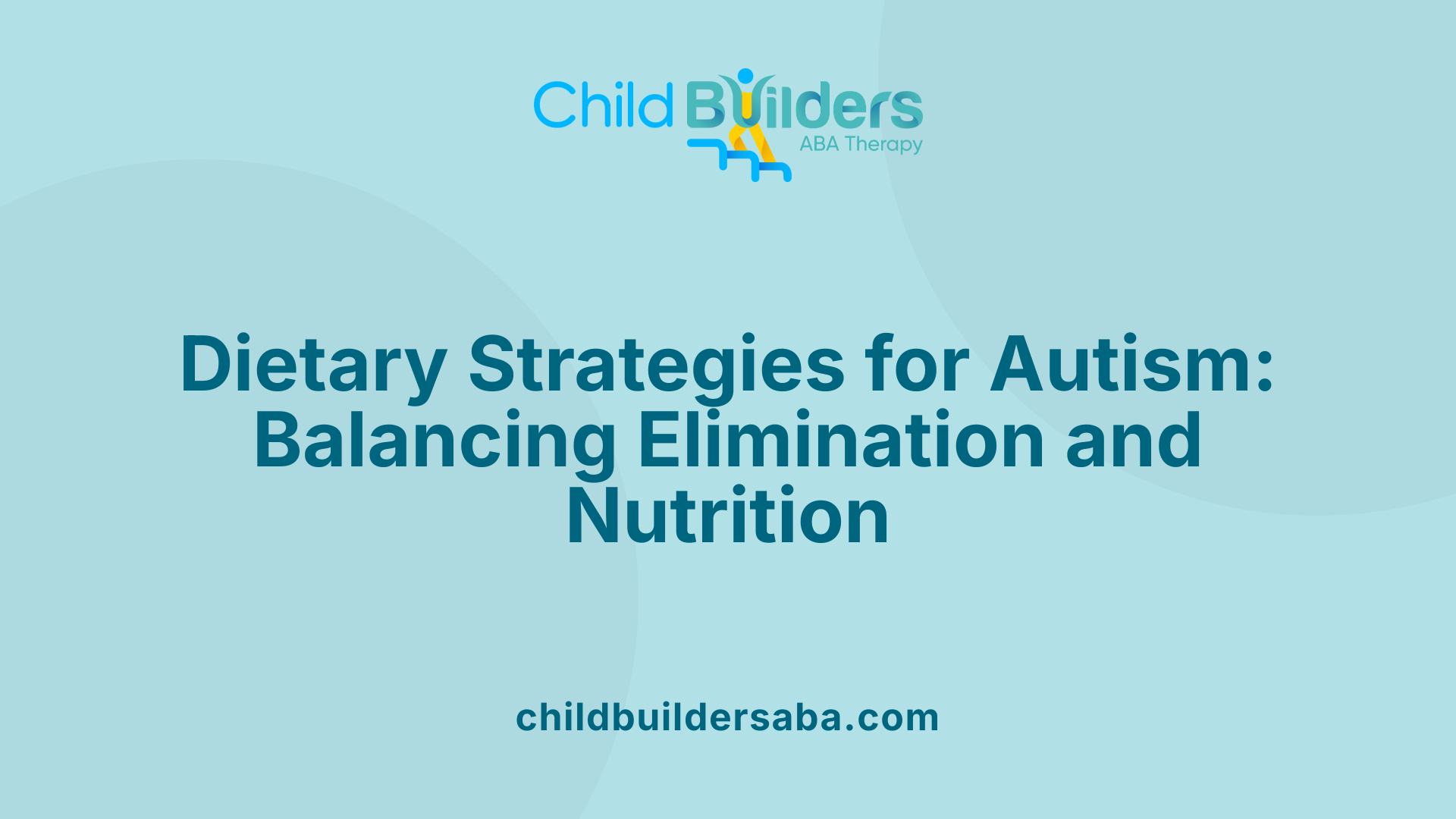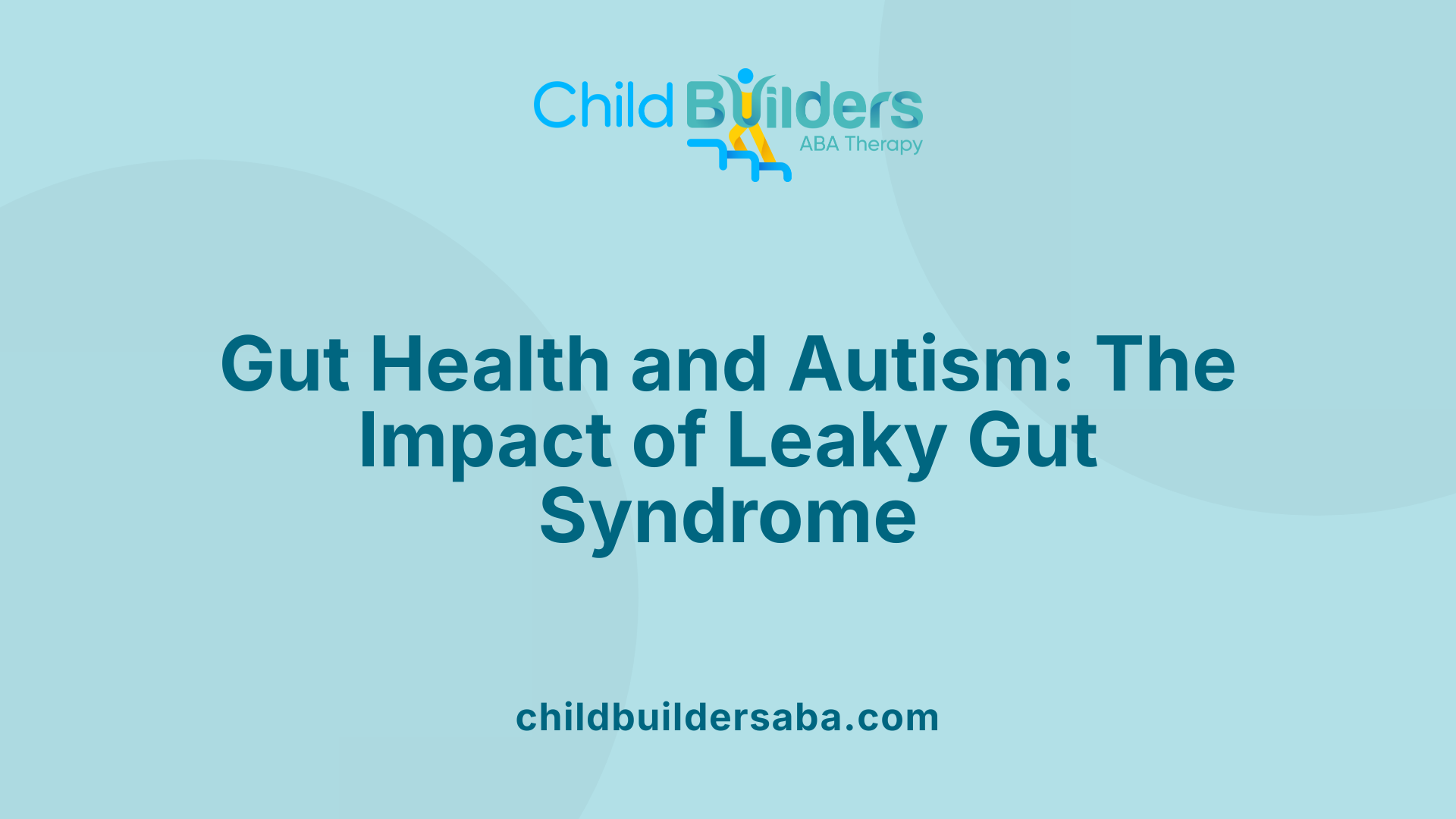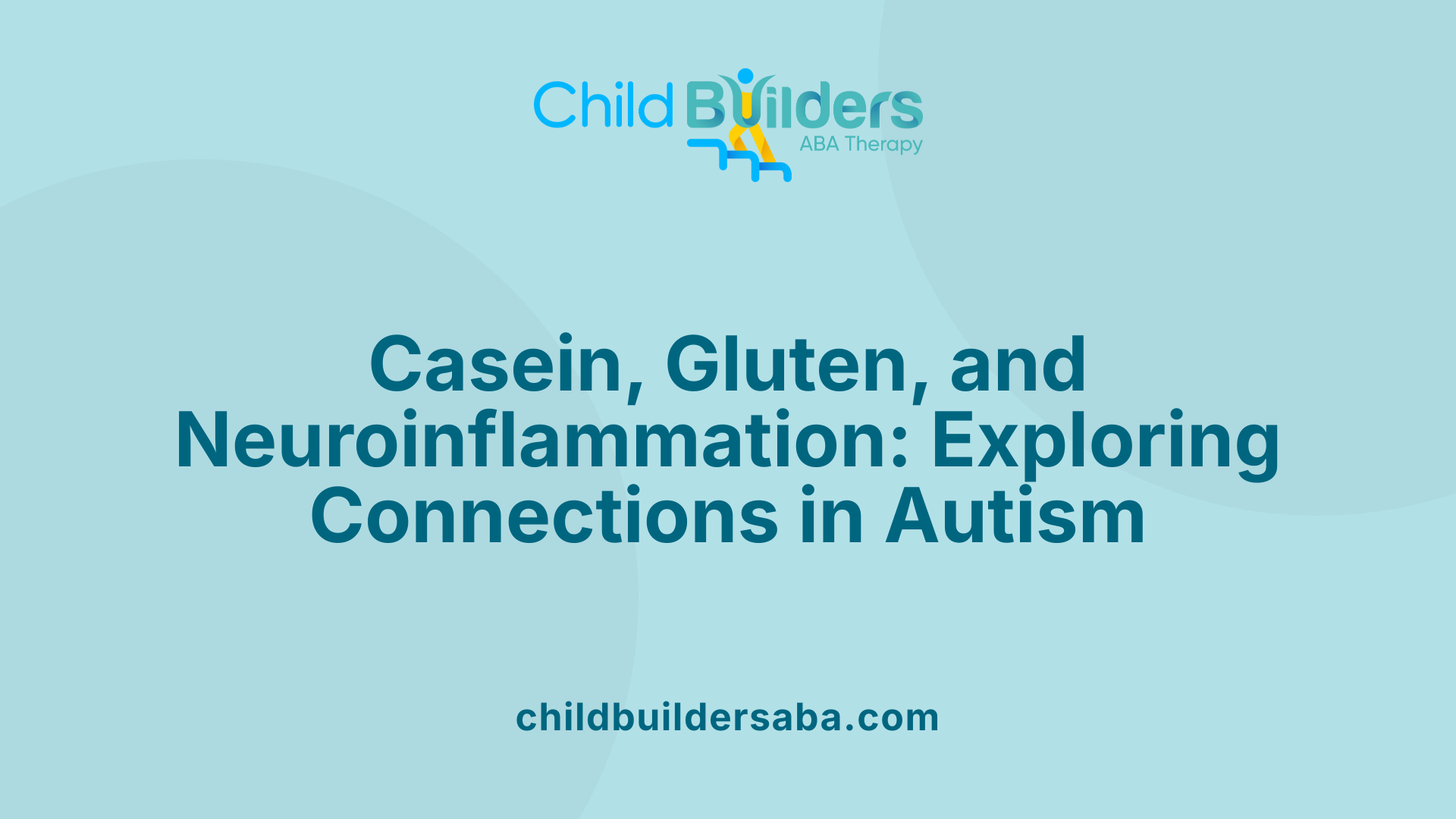Dairy And Autism

Understanding the Impact of Dairy on Autism Spectrum Disorders
The link between diet and autism has garnered increasing attention among researchers, clinicians, and families. Specifically, the role of dairy products in influencing behavioral, gastrointestinal, and neurological symptoms in autistic individuals is a topic of ongoing investigation. This article delves into the science behind dairy's effects, the rationale for dietary interventions, and evidence-based strategies to optimize nutrition and health for those on the autism spectrum.
Dairy-Free Diets and Autism: What You Need to Know

What foods should be avoided with autism?
Children with autism are often advised to steer clear of certain foods that can worsen their symptoms or cause health issues. Common culprits include sugar, which can lead to hyperactivity and difficulty concentrating. Processed foods containing artificial dyes, flavors, and preservatives should also be avoided due to their potential to overstimulate the nervous system.
Additionally, toxins like mercury and PCBs found in some fish, dairy, and produce can be problematic. Many dietary strategies for autism focus on eliminating gluten and casein, proteins found in wheat, barley, rye, dairy, and some soy products. These substances can trigger inflammation, gut imbalances, and brain fog, especially in sensitive individuals.
Corn, though often overlooked, is another food to limit because of its inflammatory potential and high pesticide residues. Careful label reading and professional guidance are essential to develop an effective diet plan that minimizes triggers while ensuring proper nutrition.
Is cow's milk suitable for autistic children?
Cow's milk may not be appropriate for all children with autism, particularly those with sensitivities or allergies to dairy proteins like casein. Eliminating dairy can sometimes improve behavioral issues, gastrointestinal discomfort, and hyperactivity.
The presence of casomorphins, opioid-like substances derived from casein, is believed to influence behaviors and symptoms in some autistic children. Reducing dairy intake during a monitored trial period of 4-6 weeks can help assess whether symptoms improve.
It is crucial to consult healthcare providers or dietitians before making significant dietary changes. They can help ensure that children receive adequate calcium and other vital nutrients from non-dairy sources such as fortified plant-based beverages, leafy greens, nuts, and seeds.
What foods or substances can potentially worsen autism symptoms?
Certain foods and additives may exacerbate autism symptoms by promoting inflammation or causing gastrointestinal distress. These include dairy and gluten, which can trigger immune reactions or hypersensitivity.
High sugar intake and refined carbohydrates can lead to hyperactivity and concentration problems, while artificial preservatives and dyes may cause sensory overload.
Exposure to environmental toxins like mercury and PCBs further complicates health, potentially impacting neurological development. Eliminating or reducing these substances through dietary adjustments can help manage symptoms.
Maintaining a diet rich in anti-inflammatory foods, such as omega-3 fatty acids, B vitamins, magnesium, and zinc, supports overall brain and gut health.
What is the relationship between lactose intolerance and autism?
Lactose intolerance, characterized by difficulty digesting lactose due to lactase deficiency, affects many individuals, including those with autism. Symptoms include bloating, gas, abdominal pain, diarrhea, and nausea.
Children with ASD tend to have a higher prevalence of gastrointestinal problems, including lactose intolerance. Managing these issues through lactose-free diets or dairy substitutes can help reduce discomfort and potentially improve behavior.
Addressing gastrointestinal symptoms with dietary modifications may not treat autism directly but can significantly enhance quality of life and reduce behavioral challenges related to gut discomfort.
Are there dietary interventions like camel milk that can help with autism recovery?
Some anecdotal reports and preliminary studies suggest that camel milk might offer benefits for autistic children, including improved mood, sleep, and communication. Camel milk is rich in nutrients and antioxidants that could have anti-inflammatory effects.
However, robust scientific evidence supporting camel milk as an effective treatment is lacking. While some families find it beneficial, it should not replace evidence-based therapies. Consulting healthcare professionals before trying such interventions is advised.
Is almond milk beneficial for children with autism?
Almond milk, as a dairy alternative, can be beneficial for children with autism by providing calcium and vitamin D without the risks associated with dairy and casein. Its avoidance of lactose and casein makes it suitable for those with sensitivities.
Nevertheless, almond milk should be part of a balanced diet, ensuring adequate intake of other nutrients. Individual responses vary, and it’s essential to monitor any dietary changes with professional guidance.
What type of diet is considered best for managing autism?
The optimal diet for autism management is personalized. Some evidence supports the gluten-free and casein-free (GFCF) diet, especially for children with gastrointestinal symptoms. Yet, scientific consensus remains limited.
A balanced diet rich in fruits, vegetables, lean proteins, omega-3 fatty acids, vitamins B6, B12, C, D, magnesium, and zinc is generally recommended to support overall health and neurological development.
Consulting healthcare professionals or dietitians ensures dietary plans meet individual needs, accounting for sensory preferences and nutritional adequacy.
| Aspect | Recommended Approach | Additional Notes |
|---|---|---|
| Elimination of dairy | Yes, for some | Monitor calcium and vitamin D intake |
| Gluten removal | Optional | Consider if gastrointestinal issues exist |
| Nutritional balance | Focus on whole foods | Ensure all essential nutrients are supplied |
| Professional guidance | Essential | Prevent deficiencies and adverse effects |
The Role of Gut Health and Leaky Gut Syndrome in Autism

What gastrointestinal issues are common in children with autism, and how might diet influence these?
Children with autism often face gastrointestinal problems such as constipation, diarrhea, stomach pain, gas, and reflux. These issues can be worsened by certain dietary sensitivities, notably lactose intolerance and reactions to gluten or additives in processed foods. Emerging research points to increased gut permeability, or leaky gut syndrome, in some autistic individuals. This condition allows harmful substances, including undigested food particles and immune-reactive proteins like casein fragments, to pass into the bloodstream.
Modifying the diet by removing dairy, gluten, and processed foods may help reduce inflammation and support gut health. This can lead to improvements not only in gastrointestinal symptoms but also in behavioral and developmental challenges. Addressing these issues through diet can be a part of a holistic approach to managing autism symptoms.
What is Leaky Gut Syndrome and its connection to autism?
Leaky Gut Syndrome refers to increased intestinal permeability, where the lining of the gut becomes more porous. This allows undigested food particles, toxins, and immune-reactive proteins—such as casomorphins from milk—to escape into the bloodstream.
In individuals with autism, this impaired gut barrier may trigger immune responses and neuroinflammation, influencing behavior and cognitive function. Research suggests that dairy products containing casein might exacerbate gut permeability issues, leading to greater immune activation and inflammation.
While the science is still evolving, many practitioners consider restoring gut integrity through dietary changes beneficial. Such strategies aim to reduce immune system stress and potentially improve autism-related symptoms.
How does inflammation relate to dietary choices and autism symptoms?
Inflammation has been linked to the severity of autism symptoms. Certain dietary components—dairy, gluten, artificial colors, and preservatives—can prompt inflammatory responses within the gut and throughout the body. Persistent inflammation may worsen gastrointestinal distress and neuroinflammation, impacting brain function.
Reducing intake of inflammatory foods through elimination diets has been reported to mitigate behavioral issues, improve concentration, and enhance social responses. Supporting this, nutrients like omega-3 fatty acids, vitamins B6, B12, D, zinc, and magnesium have anti-inflammatory properties and contribute to nervous system health.
Are there specific dietary strategies to support gut health in autistic individuals?
Yes, targeted dietary interventions can promote gut health among children with autism. These include:
- Removing foods that trigger inflammation, such as dairy, gluten, and heavily processed items.
- Incorporating anti-inflammatory foods rich in omega-3s, like fish, and vegetables.
- Using probiotic and prebiotic foods or supplements to restore healthy gut microbiota.
- Ensuring adequate nutrient intake of vitamins D, B6, B12, magnesium, and zinc.
Working with healthcare professionals is crucial to tailor these strategies safely and effectively, ensuring nutritional needs are met while supporting gut health.
| Aspect | Dietary Focus | Additional Details |
|---|---|---|
| Common GI issues | Constipation, diarrhea, reflux, gas | Can be influenced by diet, often related to sensitivities |
| Leaky gut syndrome | Increased intestinal permeability | Allows proteins like casein fragments into bloodstream |
| Impact of dairy and gluten | Promote gut inflammation and permeability | Removing these foods may improve symptoms |
| Inflammation and autism | Worsens behavioral and GI symptoms | Anti-inflammatory nutrients can help |
| Gut health strategies | Elimination, anti-inflammatory diets, probiotics | Must be personalized and supervised by professionals |
This focus on gut health underscores the importance of dietary choices in managing autism symptoms. While more research is needed to fully understand these links, existing evidence supports careful dietary management as a beneficial component of autism support.
Impacts of Dairy and Gluten on Brain Function and Behavior in Autism

What foods or substances can potentially worsen autism symptoms?
Certain foods and substances can negatively impact individuals with autism, particularly those that promote inflammation or cause gastrointestinal discomfort. Common triggers include dairy products, gluten-containing grains like wheat, barley, and rye, as well as corn, sugary snacks, refined carbohydrates, artificial preservatives, dyes, and flavors. These substances may intensify sensory sensitivities, behavioral problems, or gut issues such as bloating, constipation, or diarrhea. Parents and caregivers often find that eliminating these foods temporarily can help assess whether symptoms improve. Supportive environments that are calm and predictable also play a vital role in reducing stress-related symptom exacerbation.
What is the role of casein and gluten in autism, and how might they affect the brain?
Casein and gluten are proteins found in dairy foods and grains, respectively. When digested, they form peptides like casomorphins and gliadorphins, which can act like opioids by binding to the brain's opioid receptors. This interaction may influence mood, attention, and social behaviors, leading to issues such as brain fog, irritability, or hyperactivity.
Individuals with autism often process these peptides differently, resulting in increased behavioral challenges. Furthermore, immune responses to gluten and casein may trigger inflammation in both the gut and brain—contributing to neuroinflammation that can interfere with neural development and functioning. These mechanisms form the basis of the hypothesis that removing these proteins from the diet could alleviate certain behavioral and cognitive symptoms.
How do immune reactions to dairy and gluten influence autism symptoms?
Immune reactions to gluten and dairy proteins can lead to systemic inflammation and increased intestinal permeability, commonly known as 'leaky gut.' This condition allows peptides and other substances to enter the bloodstream more easily, potentially reaching the brain.
Such immune activation fosters neuroinflammation, which is believed to exacerbate behavioral issues, mood disorders, and cognitive deficits. In some children, a diet free from gluten and casein has been associated with decreased immune responses and reduced inflammation, often leading to behavioral improvements. However, responses to dietary intervention vary widely, emphasizing the personalized nature of autism treatment.
Is there scientific evidence supporting dietary interventions like gluten-free and casein-free diets?
Research on the effectiveness of gluten-free and casein-free (GFCF) diets in autism has produced mixed results. Some small-scale studies and anecdotal reports indicate that certain children experience improvements in gastrointestinal symptoms and behavioral issues after eliminating these proteins.
Despite these observations, large and well-controlled clinical trials have not yet provided conclusive evidence that GFCF diets universally benefit children with autism. Variability in individual responses suggests that some might benefit, especially those with documented sensitivities or intolerances. Therefore, such diets should be implemented cautiously and under professional supervision to ensure nutritional adequacy.
What other dietary components or additives should be avoided to support children with autism?
Beyond dairy and gluten, it is advisable to limit exposure to artificial food additives such as dyes, flavors, preservatives, and MSG, which can overstimulate the nervous system and irritate the gastrointestinal tract.
Toxins like mercury and polychlorinated biphenyls (PCBs) have also been linked to neurodevelopmental concerns, although dietary avoidance is complex.
Additionally, reducing sugar intake and refined carbohydrates can help manage hyperactivity and mood swings. Emphasizing whole, minimally processed foods rich in essential nutrients—like omega-3 fatty acids, vitamins B6, B12, C, magnesium, vitamin D, and zinc—can provide support for neurological health. Customized dietary plans developed in consultation with healthcare providers ensure adequate nutrition while minimizing potential triggers.
Through careful dietary management, it is possible to mitigate some behavioral and physical symptoms associated with autism, contributing to improved quality of life for children and their families.
Fostering a Holistic Approach to Nutritional Support in Autism
While the scientific community continues to explore the links between diet and autism, it is clear that nutritional strategies must be individualized and carefully planned. Eliminating dairy, gluten, and processed foods may offer relief for some children, particularly those with gastrointestinal sensitivities and immune reactions, but such diets require professional guidance to ensure nutritional adequacy. Emphasizing a balanced intake of essential vitamins and minerals—such as omega-3s, B vitamins, vitamin D, magnesium, and zinc—can support neurological health and reduce inflammation. A comprehensive, multidisciplinary approach that considers gut health, sensory sensitivities, and behavioral needs holds the greatest promise for improving quality of life for children on the autism spectrum.
References
- Dairy-Free Diet for Autism
- Foods to avoid with autism - LeafWing Center
- The association between sugar-sweetened beverages and milk ...
- A2 milk for autism - Health Research Authority
- Gluten Free/Casein Free Diets for Autism - WebMD
- Understanding Autism and Lactose Intolerance - Golden Care Therapy
- Why asking what causes autism is the wrong question

























.jpg)











































































